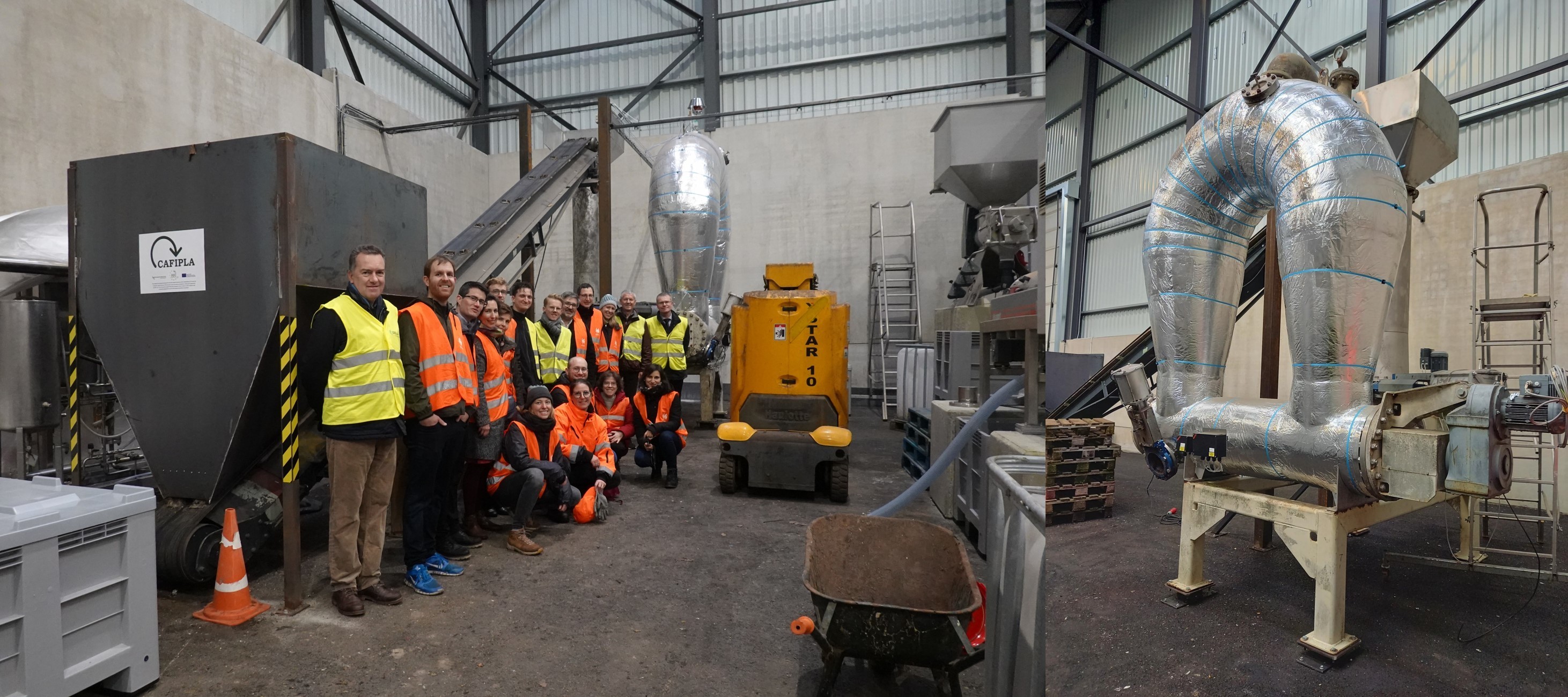
Recently, the CAFIPLA pilot plant – the “LOOP” – was successfully installed at the intermunicipal biowaste treatment facility of IDELUX Environnement in Belgium and demonstrates the upscaling potential of the CAFIPLA process
© DECHEMA / TECNALICA
Market Report: Role of biowaste as essential resource for a growing cirular bio-based economy
The market assessment details the high relevance and impact of biowaste-derived materials in an expanding bioeconomy and demonstrates how novel value chains and markets are created from biowaste by the CAFIPLA project. The CAFIPLA technology presents a radically new approach to biowaste pretreatment via two integrated platforms to achieve maximum valorisation into bioproducts and consequent creation of new bioeconomic value chains.
Current climate scenarios risk an over reliance on biomass which results in a predicted biomass gap of 40-70% by 2050. In an expanding bioeconomy, demand, and competition for biomass as a feedstock will increase, making the efficient utilisation of biowaste, an abundant but currently underused resource, become increasingly important. The European Commission assesses in their recent Bioeconomy Strategy Progress Report how their currently ongoing pilot actions are focused on developing urban circular bioeconomy concepts “[…] for the production of safe, sustainable and valuable bio-based products from urban biowaste and wastewater.”
While the idea of using organic waste as renewable resource for bioproduction is not entirely new, the CAFIPLA approach is the first of its kind to integrate a carboxylic acid platform (CAP) for the conversion of easily degradable biomass with a fibre recovery platform (FRP) for the valorisation of fibrous biomass. The market report highlights the potential of the two platform products to serve as starting point for multiple valorisation routes leading to a broad spectrum of bioproducts. Selected CAFIPLA end products are showcased including information regarding production processes, product properties and targeted market applications. The CAFIPLA products include polyhydroxyalkanoates (PHA) which can be used as biobased and biodegradable plastics or bio-composites, medium chain carboxylic acid (MCCA)-based biooils to be used as antimicrobial feed additives as well as microbial proteins serving as slow-release fertilisers or food and feed additives. The simultaneously produced reinforced natural fibres have high environmental benefits and are relevant for the insulation and construction market segments.
Recently, the CAFIPLA pilot plant – the “LOOP” – was successfully installed at the intermunicipal biowaste treatment facility of IDELUX Environnement in Belgium and demonstrates the upscaling potential of the CAFIPLA process with a technology readiness level (TRL) of 5. Currently, the first half-year trial period is in full swing to provide the platform products that are being send to the CAFIPLA partners for subsequent valorisation into the relevant biowaste-based end products.
The full report is available here
About CAFIPLA
In the CAFIPLA project, 12 partners from across Europe, including six SMEs, are taking up the challenge of developing a new integrated platform for the economic conversion of biowaste into higher value products. They are supported by research institutes, universities, and industrial companies. As one of the project partners, DECHEMA, a non-profit professional society and the expert network for chemical engineering and biotechnology in Germany, developed the present market assessment, which is available for free on the CAFIPLA website.
back to overview
© DECHEMA e.V. 1995-2025, Last update 17.01.2025

